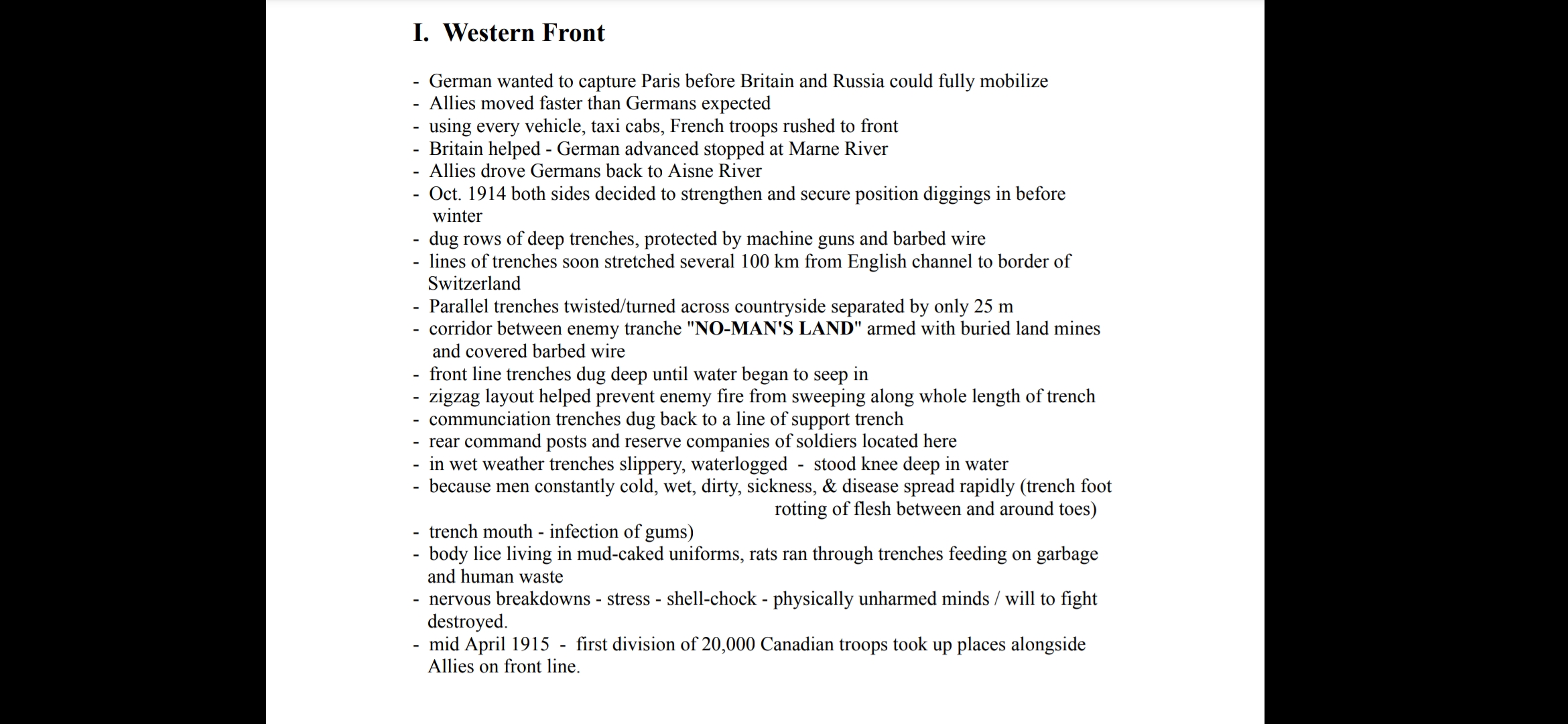What were the key details about trench warfare on the Western Front in World War I?

Understand the Problem
The content of the image discusses the conditions and strategies used on the Western Front during World War I, detailing trench warfare's challenges and tactical elements.
Answer
Trench lines up to 1 mile deep, barbed wire, zigzag layout, harsh conditions, and diseases.
The key details about trench warfare on the Western Front in World War I include parallel trench lines running up to 1 mile deep, protected by barbed wire and machine guns, with a zigzag layout to prevent sweeping enemy fire. Conditions were harsh, with mud, waterlogging, and diseases like trench foot.
Answer for screen readers
The key details about trench warfare on the Western Front in World War I include parallel trench lines running up to 1 mile deep, protected by barbed wire and machine guns, with a zigzag layout to prevent sweeping enemy fire. Conditions were harsh, with mud, waterlogging, and diseases like trench foot.
More Information
Trench warfare created a stagnant front line with severe living conditions leading to diseases, psychological stress, and high casualties.
Tips
A common mistake is assuming trench warfare was static, but it involved complex strategies and innovations.
Sources
- Trench Warfare | National WWI Museum and Memorial - theworldwar.org
- Trench warfare - Britannica - britannica.com
- Life In The trenches Of The First World War - IWM - iwm.org.uk
AI-generated content may contain errors. Please verify critical information